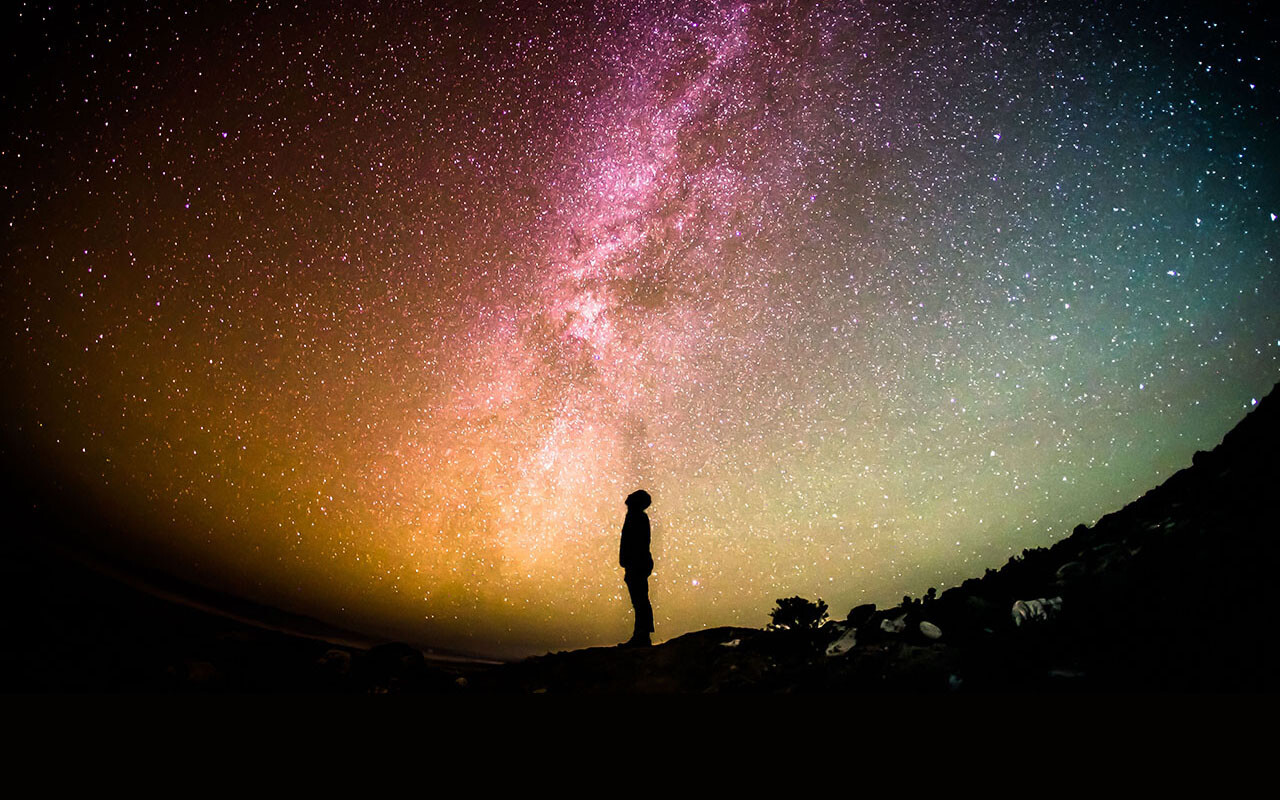
As a kid, I had a lot of questions. I’d sit in the basement, cozied up with my dad on our marigold-colored couch, and ask some real doozies. We’d talk about God and faith, the science behind how things work, and the ways faith and science intersect. Those chats were some of my fondest memories, and I can now see how much they’ve shaped me as an adult.
I still have lots of questions—I guess that’s how I’m wired. I tend to overanalyze, and although I’m working to cut back on this in some areas, I’ve learned that this tendency can also be a strength when directed the right way.
When it comes to faith, my questions have sent me in search of answers. I often think back to those conversations with my dad, and I’m grateful for our shared passion for science, especially as it relates to our belief in the Bible. The world wants us to think that these two things—science and faith in God—can’t and don’t go together. In my study of this area, however, I’ve actually been convinced that this is quite the opposite.
Yes, there are many scientific findings that are argued to negate the Bible or even disprove the existence of God. It can feel defeating as a Christian when intelligent scholars are so adamant about this after years of research. A lot of people find it easier to pick a side: to either believe what the loudest voices are saying or to simply tune it out altogether. But those are not the only options.
First of all, much of what we think of as “scientific facts” are actually hypotheses or theories. They haven’t been proven—even if there are people who would like to say otherwise. Secondly, when looking closer at the various theories, principles, and facts, we can see how many scientific discoveries in recent years actually point directly to a divine, powerful Creator.
Scholars and scientists have written extensively on how findings in biochemistry, cosmology, and physics demonstrate that this world and the people in it aren’t likely here by random chance. The precision and intricacies that literally make our world go around is mind boggling. The details that go into how our bodies operate so we perform our most day-to-day tasks are astonishingly complex.
I am certainly no expert in the study of faith and science, but I enjoy learning from those who are. One of my favorite books is The Case for a Creator.* Author Lee Strobel is an atheist-turned-Christian who shares a compelling account of how recent scientific findings actually suggest an intelligent designer.
So what are some of these discoveries I’m referring to that point us toward our Creator? Well, this by no means will do this area of research justice, but here are a few interesting points to consider.
1. The universe had a beginning.
From the Big Bang to other lesser known theories, the vast majority agree that the universe came into existence suddenly. In our world, we understand that anything which begins to exist has a cause. If there was essentially nothing material that existed before our universe, it’s logical to think that something or Someone very powerful, outside of space and time, was orchestrating the creation of it all. What does this type of theory also align with? The biblical account of Creation when God, our Creator, spoke the world into existence. It was sudden, it was purposeful, and it was magnificent.
2. Our systems are “irreducibly complex.”
Biochemist Michael Behe has demonstrated how the complexity and design of our biological systems point directly toward a Creator. We all have “molecular machines” within us, and it would be nearly impossible for these systems to simply come into existence by being built up on one another, a popular theory of Darwinism. Strobel quotes Behe in his book, saying, “My conclusion can be summed up in a single word: design. I say that based on science. I believe that irreducibly complex systems are strong evidence of a purposeful, intentional design by an intelligent agent."
3. We have conscious thoughts.
Science can explain a lot—like how our brain and body work together. The research in the field of neuroscience is fascinating. Yet one thing that science can’t explain is consciousness. There is nothing science offers that can truly explain this phenomenon in which we can think, reason, and experience emotions.
When God is added into the picture, however, it all comes together. Certainly, we can’t understand how we developed consciousness from the material world, because as J.P. Moreland stated, “You can’t get something from nothing.” Yet if humans were created through the mind of God, we no longer have a problem explaining how we became feeling, thinking, and believing beings.
Like I mentioned, this is merely a small snippet of the research I’m referring to. If you find all of this intriguing and want to learn more, I highly encourage you to check out Strobel’s book or look into other resources that expand on these matters even further.
Another cool thing along the same vein of thought as these discoveries in science, however, is recorded in the Bible. Hundreds of years before the science and technology we have today, Paul, a follower of Jesus, wrote these words:
"For since the creation of the world God’s invisible qualities—His eternal power and divine nature—have been clearly seen, being understood from what has been made, so that people are without excuse." Romans 1:20
God made Himself known through His immaculate creation from the very beginning. What science is uncovering really isn’t new information. Although faith in God is about so much more than seeing Him in nature, this can be a great place to start.
We all put our faith somewhere, whether it’s in God, science, ourselves, or something else. Simply placing our faith in a theory that points to God isn’t the answer either. After all, that’s not really believing in God—that’s believing in the research, in man, in the world. Plus, what happens when another study comes out next week that seems to go completely against God? Faith in God cannot be contingent upon the findings of science or any other belief system society offers us.
We’re human and are prone to error and misunderstanding. God is God, and we can’t even begin to fully understand His ways. But we can seek to learn more about Him and to ultimately choose faith.
We can choose to trust in God’s Son, Jesus. We can believe that He came to earth to be our Savior. When we believe that, we can have faith that God created this world and designed us in His image. Faith that He wants the very best for us and that He’s pursuing us daily. Faith that He loves us wholly and unconditionally.
We can continue to ask our tough questions and search for answers, but in the end, it all comes down to faith. Faith in God is what gives us a hope beyond our world or any scientific discovery. Science, even when it points to God, isn’t where true hope is found. True hope is found in Christ alone.
*Strobel, L. (2004). The Case for a Creator. Zondervan.


